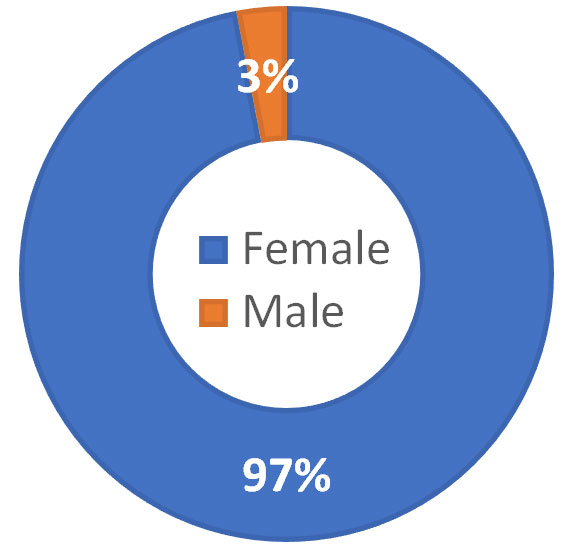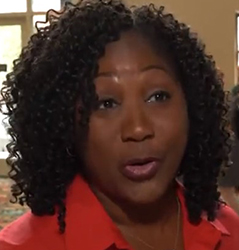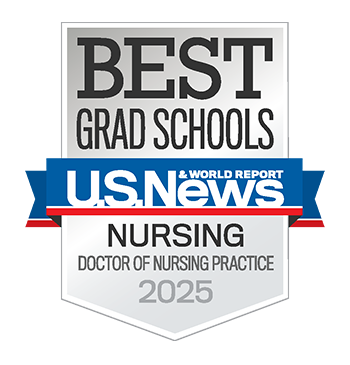Doctor of Nursing Practice (DNP) Executive Track
Need your questions answered?
OVERVIEW
Innovate
Planning to drive healthcare innovation and influence policy? Get the analytic skills and evidence-based practice principles you need in the DNP Executive Track at Johns Hopkins. You’ll address significant healthcare problems-defined by your interests and based on your experience-in real time and in your practice setting. And you’ll find numerous opportunities for collaboration, challenging problems for study, and a tradition of rigorous scholarship.
The DNP Executive Track also offers dual degree programs in partnership other schools at Johns Hopkins, including the DNP/MPH with the Bloomberg School of Public Health and the DNP/MBA with the Carey Business School.
DNP graduates remain in practice, leading cross-professional teams in the improvement and provision of informed quality healthcare. The knowledge, skills, and abilities to conduct such work is developed across the program and applied in the conduct of the DNP final project. The DNP final project is the student’s original work that establishes them as a Hopkins Nursing clinical scholar.
Program Details
Tuition & Fees
Estimated Tuition Cost: $2,057 per credit See Cost of Attendance Details
Financial Aid: There are numerous options for financing your education including grants, scholarships, federal loans, and employment programs. Learn more.
Upcoming Application Deadlines
Summer entry: Nov 1 and Jan 15
Requirements
Admission Criteria
Master’s Degree in Nursing from an ACEN or CCNE accredited college or university or an equivalent degree from a comparable foreign institution
Scholastic GPA of at least 3.0 on a 4.0 scale
RN licensure
Three Letters of Recommendation (2 professional and 1 academic preferred)*
Official Transcripts (from all previous colleges/universities)
Current Resume/CV
Goal statement/project proposal (demonstrating commitment to nursing practice and scholarly pursuit)
Interview with faculty (if moved forward by admissions committee)
Applicants who earned fewer than 552 clinical hours as part of their advanced nursing coursework should email [email protected] for information about the best pathway to your DNP**
Students should have an identified clinical/project site for conducting a scholarly project at the time of matriculation
Information for applicants with international education
* References should be recent, written for the purpose of your application to this program and from professors who know you as a student or employers who know you as a professional in a job setting preferably in a supervisory role. Personal references from colleagues, friends, or family members do not meet the requirement. It is strongly preferred that at least one of your letters comes from someone that potentially could serve as your organizational mentor.
** Applicants are required to have 375 clinical hours as part of their advanced nursing coursework. Students who have between 375 and 552 clinical hours will have to complete additional clinical hours as part of a practicum. If you have an entry-to-practice Master’s degree, earned fewer than 552 clinical hours as part of your advanced nursing coursework, or hold a Master’s specialty in education, please email [email protected] to discuss your educational background with an Admissions Counselor.
Prerequisites
Graduate Level Biostatistics (3 credits): Demonstrates evidence of statistical literacy and statistical reasoning enabling students to critically read and evaluate healthcare literature. Course must be completed at a regionally accredited college or university with a letter grade of B or better. Grade of B- will not be accepted.
Student Sponsorship
This program does not qualify for F-1 or J-1 student sponsorship. Legal Permanent Residents and non-immigrants who are otherwise physically present in the U.S. and in a status that allows for full or part-time study, may pursue this program.
DNP Executive profile based on Summer 2024 cohort
24%
Underrepresented Minority

97% Female/3% Male
50%
First Generation
9
Countries Represented
24
States Represented
43
Average Age
14
Average Years Nursing Experience
Curriculum
The program’s executive session format can be completed in six semesters of study, integrating approximately 3 days of on-site immersions during the first year with online and virtual learning experiences.
Onsite Dates
The Doctor of Nursing Program’s executive session format can be completed according to the plan of study below.
The School of Nursing integrates 3 on-site immersions of 3-4 days each during the first year with a 1-day on-site symposium event the day before School of Nursing graduation.
Course of Study
First Year (21 Credits)
Problem Discovery (3)
Health Finance (2)
Nursing Inquiry for Evidence-Based Practice (3)
Advanced Nursing Health Policy (2)
Organizational and Systems Leadership for Quality Care (2)
Translating Evidence into Practice (3)
Project Advancement (3)
Electives* (3)
Second Year (19 credits)
Analysis and Evaluation of Individual and Population Health Data (3)
Health Information Systems and Patient Care Technologies (2)
Elective* (3)
Project Application (3)
Elective* (3)
Project Evaluation and Dissemination (3)
Clinical Data Management and Analyses (2)
*Electives may be taken at the School of Nursing, School of Medicine, Bloomberg School of Public Health, the Whiting School of Engineering, and the Carey Business School.
Note: A minimum of 1000 practice/practicum hours are required for the DNP program (prior MSN -552 clinical hours plus 448 DNP practicum hours).
** DNP Executive Track students are not permitted to take Electives in the first 2 semesters. A total of 9 elective credits are required. Course credits can range from 1 to 3 and dispersed across semesters 3 through 6
“I currently work in pain management. I love what I do, I enjoy my patients. But I also wanted to learn more about what I could do to help them on a larger scale. The knowledge I gained is going to help me do that.” Iquo Andrews-Cooper DNP, MSN, RN, FNP-C
Iquo Andrews-Cooper DNP, MSN, RN, FNP-C
Iquo Andrews served the U.S. Army for 21 years, retiring to further her nursing career. In addition to work as a family nurse practitioner mostly within the military community, Andrews-Cooper spent about five years in medical surgical and cardio-thoracic step down units and in the surgical intensive care unit.
Engage with Us
Join us soon for a tour, on-campus event or a virtual visit.
Request Information
Speak with Admissions to learn more about our programs.
Virtual Info Sessions
See recordings of some of our recent virtual info sessions.
Tuition & Other Costs
Financial aid
View the costs for the DNP Executive Program.
2025-2026
Scholarships & Grants: Grants are awards based on financial need that do not have to be repaid. Many students also benefit from scholarships and awards based on merit. Learn more.
Loans: Many students will avail themselves of loans to help finance their School of Nursing education. If necessary, we encourage you to borrow only what is absolutely essential to cover your educational costs. Learn more.
Employment: Many students locate part-time employment to help pay education expenses. Numerous positions are available on campus and within various community based organizations. These jobs provide students with opportunities to gain practical work experience. Most positions are funded through the Federal Work-Study Program. Learn more.
Frequently Asked Questions
The Doctor of Nursing Practice (DNP) is a doctoral degree for nurses at the highest level of nursing practice (https://www.aacnnursing.org/Education-Resources/AACN-Essentials).
The DNP program prepares nurse leaders for evidence-based practice in both direct patient care and executive roles. This requires competence in translating research in practice, evaluating evidence, applying research in decision-making, and implementing viable clinical and organizational innovations to change practice.
The PhD program is designed to prepare nurses for careers as research scientists, often in academic or governmental positions. View Comparison Chart
Yes, many schools of nursing offer tenure track faculty positions to nurses with DNPs and PhDs. Additional coursework and training as an educator can also be beneficial for those with a doctoral degree in nursing that would like to teach. Check out our Nurse Educator certificate at https://nursing.jhu.edu/academics/programs/post-degree/nurse-educator/ .
Yes, our DNP program has full accreditation by the Commission on Collegiate Nursing Education until 2028.
GRE scores are not required for the DNP Executive track. If interested in a dual degree program, please refer to the specific program page for additional information surrounding GRE requirements.
The DNP-Executive track is designed to fit into the schedule of someone working full time in a clinical setting. The course work and scholarly project are intended to complement their work focus.
A dissertation is not required. A DNP scholarly project will be completed by the end of the program. The DNP final project is the students’ original work that establishes them as a Hopkins Nursing clinical scholar. DNP Scholarly Project Requirements and examples of previous Projects can be found on our website.
All applicants must have earned a minimum of 552 clinical hours as part of their post-licensure master’s program. Nurses who do not have advanced practice licensure should contact the Office of Admissions for an eligibility review at [email protected].
The DNP-Executive track is a post-Master’s program for nurses who have already obtained advanced practice licensure. The DNP-Advanced Practice track at the JHSON is for nurses who are seeking advanced practice licensure as a Nurse Practitioner or Clinical Nurse Specialist.
There are four onsite visits associated with the DNP-Executive track that are spread throughout the program. Specific onsite immersion dates will be posted on the program website.
Contact Cesar Nuñez, Assistant Director of Recruitment for the DNP Executive tracks, at [email protected] with any additional questions or to schedule a phone call to discuss ways to make your application as strong as possible.
If you are not currently working in a practice environment where a DNP project might be feasible, please contact the Office of Admissions, [email protected], to discuss your options.
